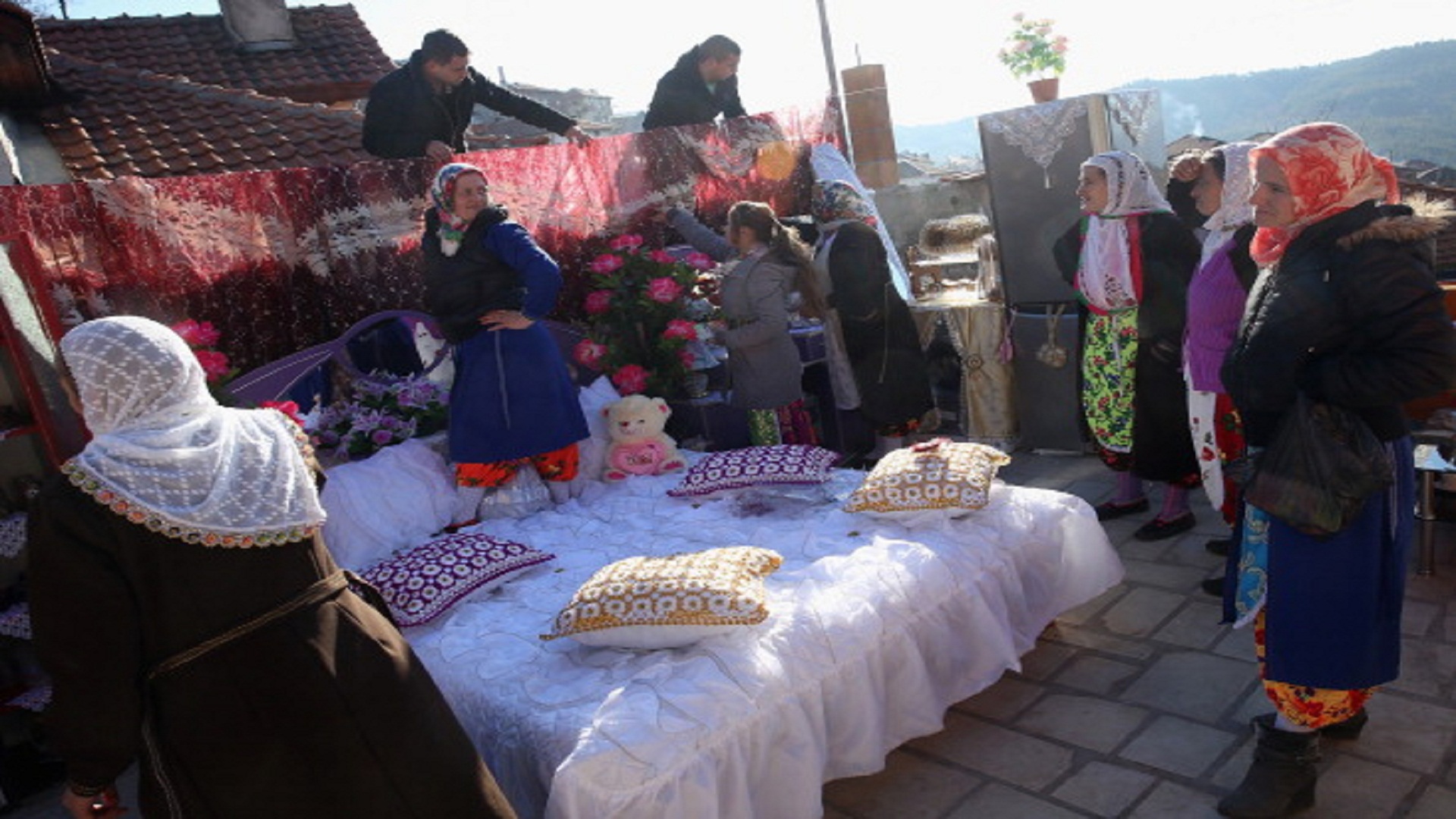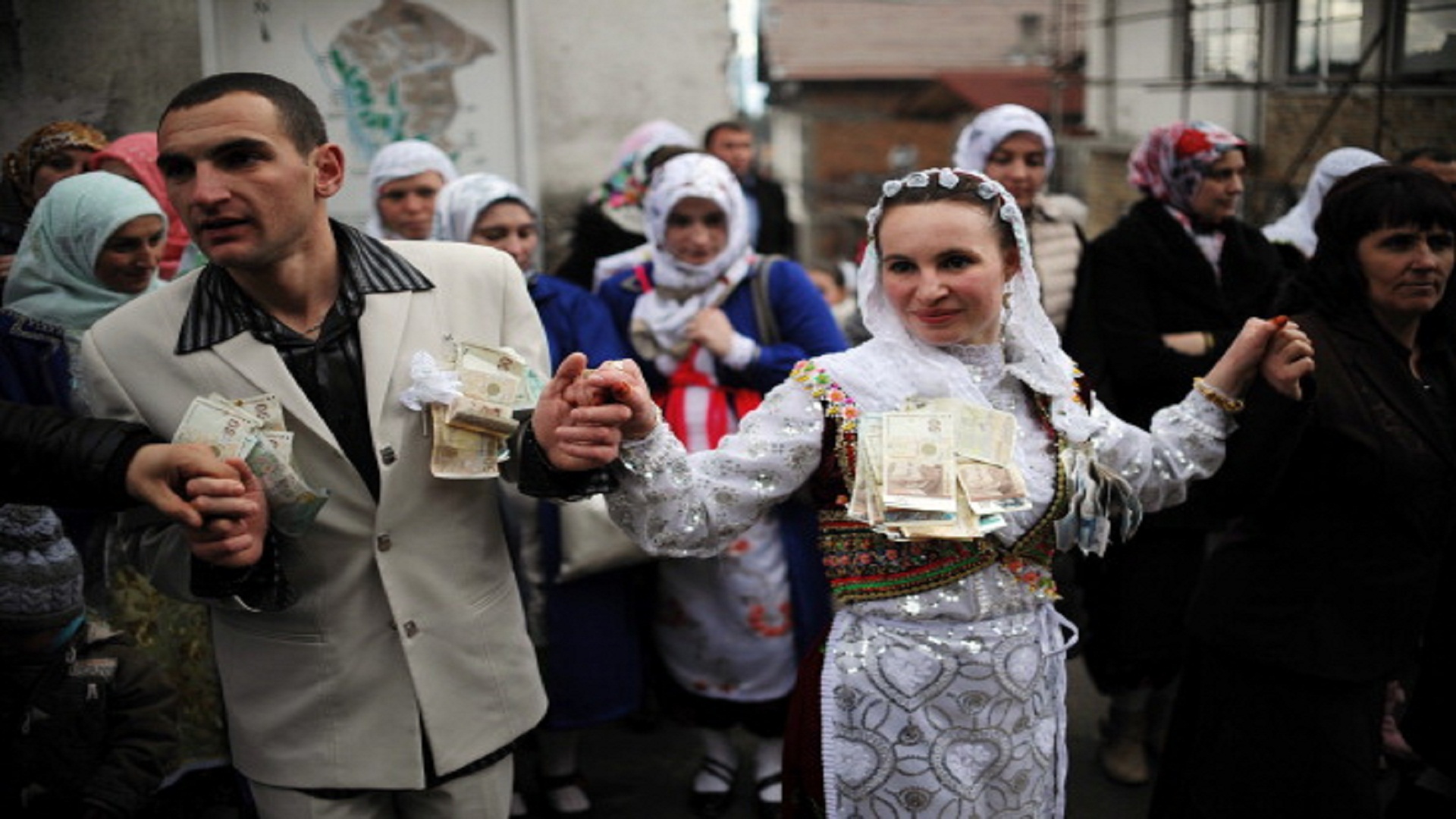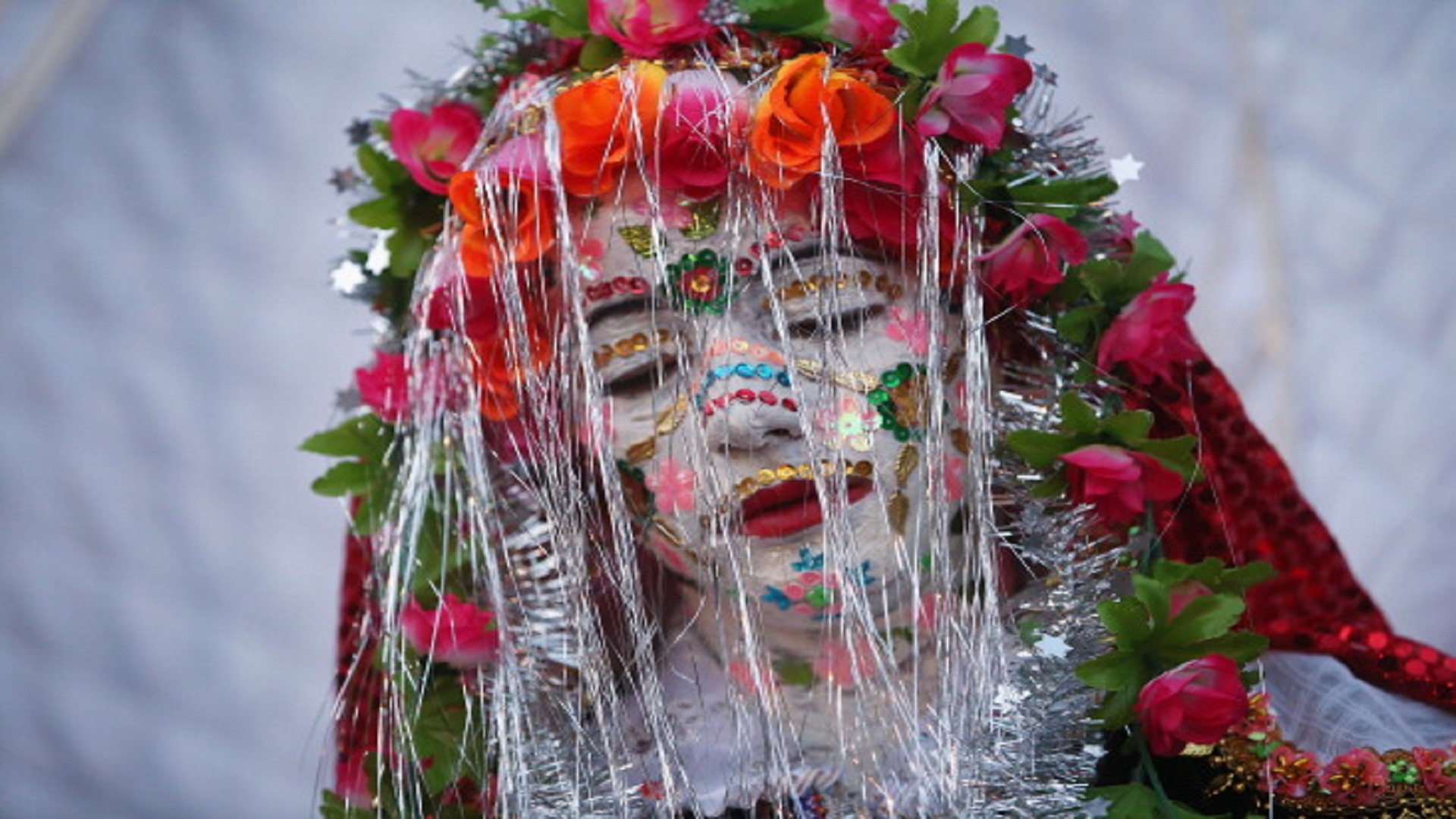شاهد بالصور .. طقوس الزواج الغريبة بقرية مسلمة في بلغاريا

جذبت أزمة اللاجئين السوريين اهتماماً دولياً نحو المسلمين في أوروبا، كما أنها تسببت بارتفاع موجة جديدة من مشاعر العداء للإسلام، ونشرت “ناشيونال جيوغرافيك” مقالاً وثقت فيه زواجاً تقليدياً لمسلمين في قرية ريبنوفو ببلغاريا، والتي تظهر أن المجتمعات الإسلامية جزء أساسي من القارة منذ وقت طويل.
وهذه القرية النائية ما تزال تحافظ على احتفالات الزواج المحلية للمسلمين “السلافيك”، بالإضافة إلى قرية أخرى في البلاد، وتتم في الشتاء، وهو فصل الزواج التقليدي.
وتستمر الاحتفالات ليومين كاملين، كل سبت وأحد، ففي كل نهاية أسبوع في ريبنوفور، ستجد الناس يرقصون، ويأكلون، ويبنون غرف نوم متقنة للاحتفال بالعرسان الجدد.
وتوضع غرف النوم خارج منزل العائلة في وقت باكر من صباح السبت، ليظهروا للأقارب والجيران والأصدقاء ما ستكون عليه حياة الزوجين الجديدة، وللتباهي بالغرفة المتقنة والكبيرة.
وسرعان ما يصل الضيوف مع الهدايا التي يضعونها خارج منزل عائلة العروس، حيث تُنصب سقالات خشبية خارج المنزل، ويعلق الناس البطانيات والسجاد والبسط وبعضها مصنوع يدوياً، كهدية للعروسين في بيتهما الجديد.
والسر في القيام بهذه الطقوس يكمن في تشارك الناس المحليين، فبناء هذه السقالات يحتاج إلى 10 إلى 15 رجلاً، وكذلك تركيب غرفة النوم خارج المنزل وتفكيك كل ذلك، في النهاية يحتاج العرس إلى جهود حوالى 60 رجلاً.
وبعد ظهر السبت، تستضيف عائلة العروس الاحتفال، ويأكل الناس، ويعلقون المال على ملابس العروسين، ويؤدون الرقصات التقليدية في ساحة القرية، ولاحقاً في المساء تجتمع العروس وصديقاتها لرسم الحناء على الأيدي.
وفي اليوم التالي يتكرر كل ذلك، تنصب غرفة النوم مجدداً وتصل الهدايا، فيما تستضيف عائلة العريس الحفل بعد الظهر.
لكن في تلك الليلة لا تكون العروس بيدين مخضبتين بالحناء فقط، وإنما يكون وجهها مطلياً أيضاً، حيث تقوم صديقاتها بتزيينه بدقة، بطلاء أبيض ومجوهرات صغيرة، في عملية تسمى “غيلينا” والتي تستغرق عدة ساعات.
وبعد ذلك ترفع قدمي العروس عن الأرض وتغادر بيت والدها بعينين مغمضتين، للدلالة على أنها لن ترجع للعيش في هذا المنزل.
وفي الخارج، يكون هناك حشد من الناس ومن بينهم العريس، حيث تقف العروس بجواره ويستلمون الهدايا ويلتقطون الصور، كل هذا والعروس ما تزال مغمضة عينيها، وقد يقوم الإمام بالدعاء لهما.
بعدها تبدأ العروس بالمشي إلى بيت زوجها بغضّ النظر عن المسافة، التي قد تكون قصيرة أو طويلة جداً أحياناً.
وبمجرد وصولهما إلى بيت العريس، تقوم العائلة باللحاق بالعروسين إلى غرفة نومهما، ويرفع العريس الحجاب الأحمر عن وجهها، وأخيراً يغادر الجميع ويتركونهما لثلاثة أيام كاملة.



العربي الجديد
ركوب الخيل لا يناسب الجميع؟ أيهما أصعب تربية الأولاد أم البنات؟ جسر الأسنان
هل تعقيم اليدين مفيد؟ الكركم والالتهابات أفضل زيوت ترطيب البشرة
